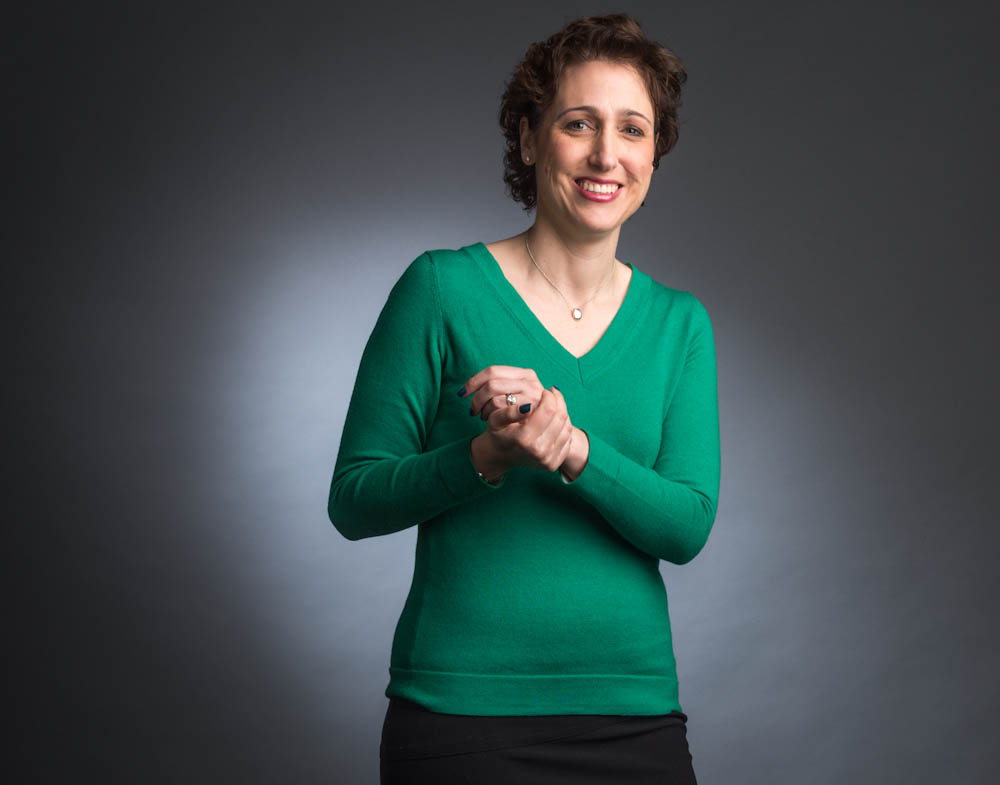
We all know what to expect following a car accident: insurance claims, whiplash, maybe even a broken bone. Cancer, though? Not so common. For 40-year-old Laura Greco, this is what happened following a collision on a snowy day in February 2015.
If I hadn’t been in the car accident, I wouldn’t have found the cancer as early.
I was driving home, and was hit by an SUV. My 6-year old suffered a concussion and complained of injury to his arm so we went via ambulance to the hospital. As the adrenaline wore off, I started to feel whiplash pains so I consented to a trauma scan. The hospital found nothing significant relating to my back and shoulder pain, but told me, casually, that I might want to check out the mass in my lung. “We see stuff in lungs all the time,” the physician’s assistant informed me. “You’ve never smoked, right?”
“Right, and I’m only 40!” I replied. A few days later, I got a call from the doctor telling me that I needed to get the 3.75-cm mass in my lung biopsied right away.
You can get lung cancer, even if you’ve never picked up a cigarette.
The biopsy results showed it was non-small cell cancer, adenocarcinoma. There appeared to be some lymph node involvement as well, which meant that I had stage 3A cancer. I was in complete disbelief. Doesn’t someone with cancer feel sick? I felt great! Like so many others, I believed the anti-smoking campaigns. I thought that if you never smoked, you could cross lung cancer off your worry list. Turns out, to be at risk for lung cancer, all you need is lungs.
Read more:
Often, the risk to nonsmokers is not portrayed accurately.
At the same time I was being diagnosed, I was in New York and I was bombarded with a massive billboard, television, and radio public service campaign about a young man who died of lung cancer with the tagline “if only I didn’t pick up that first cigarette.” I screamed and cried because I never picked up that first cigarette. Then I called New York’s Department of Health, the bureaucracy behind this ad campaign, and explained that while not picking up a cigarette will prevent many instances of lung cancer, it won’t prevent all cases. In fact, the ad campaign reinforces the false notion that “no smoking means no cancer.” For nonsmokers like me, that misconception is potentially deadly.
The face of lung cancer is changing.
For whatever reason, according to several recent studies, the face of lung cancer is getting somewhat younger, and involving more never-smokers. Yet many in the larger medical community have not acknowledged this new reality. Lung cancer in never-smokers is the sixth leading cause of cancer death in the U.S. That hardly makes it rare. It is time for lung cancer to be recognized as the indiscriminate killer that it is.
We are a motivated bunch.
Younger lung cancer patients in particular are highly motivated. We have young children and families that need us. As a survivor, I feel it is my obligation to educate the public and advocate for more research. I have written or spoken to U.S. Senators, People magazine, a local radio station, and New York State government officials. I formed a team for Breathe Deep’s 5K run for the benefit of the Lungevity Foundation, and recruited over 50 walkers. But we need to do so much more to improve outcomes for lung cancer patients.
The fight against lung cancer has made important strides in the past five to seven years. Targeted therapies, as well as immunotherapy, have been extending patients’ lives by months, and for some by years. However, for younger patients, the opportunity to live a few more years simply is not good enough. To health care professionals, I would ask that you think outside the box when treating lung cancer patients. Offer us something new. We’re game.
